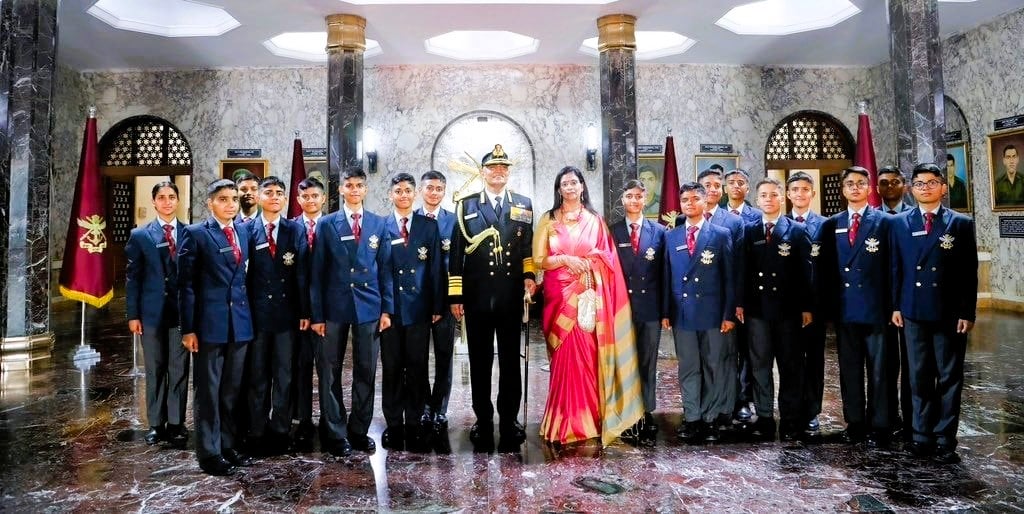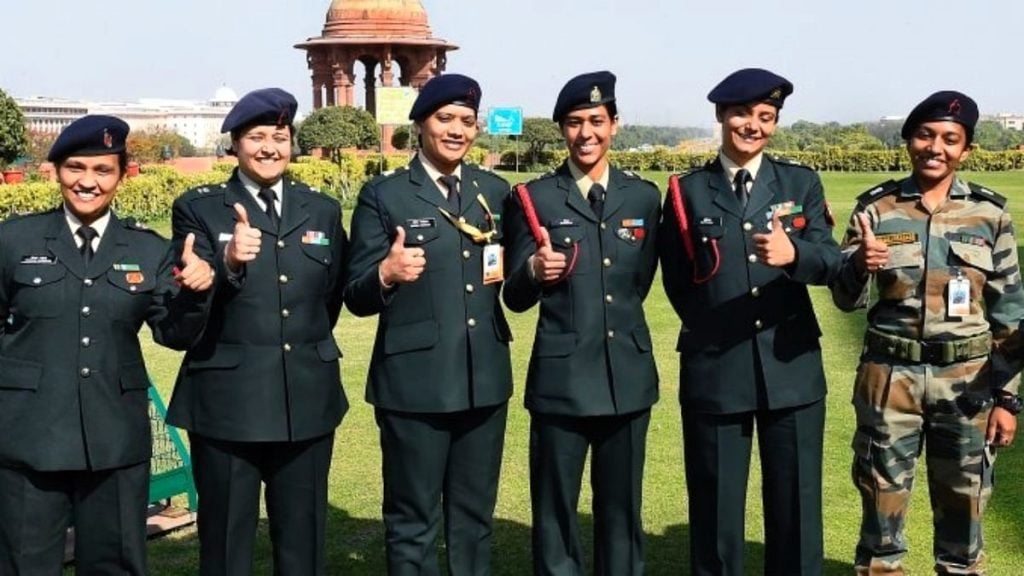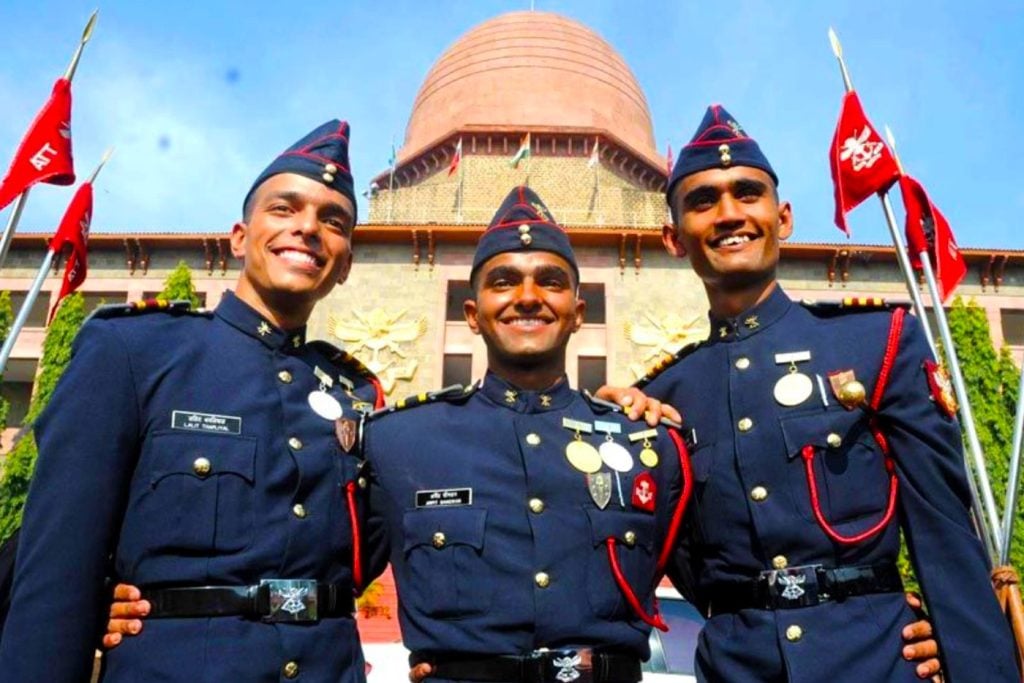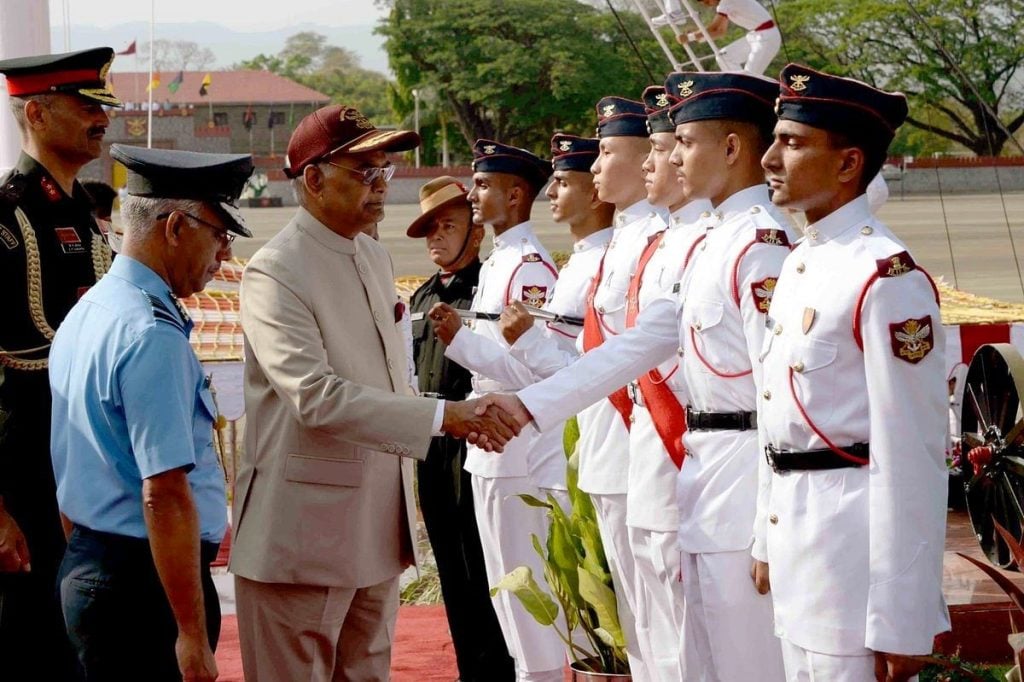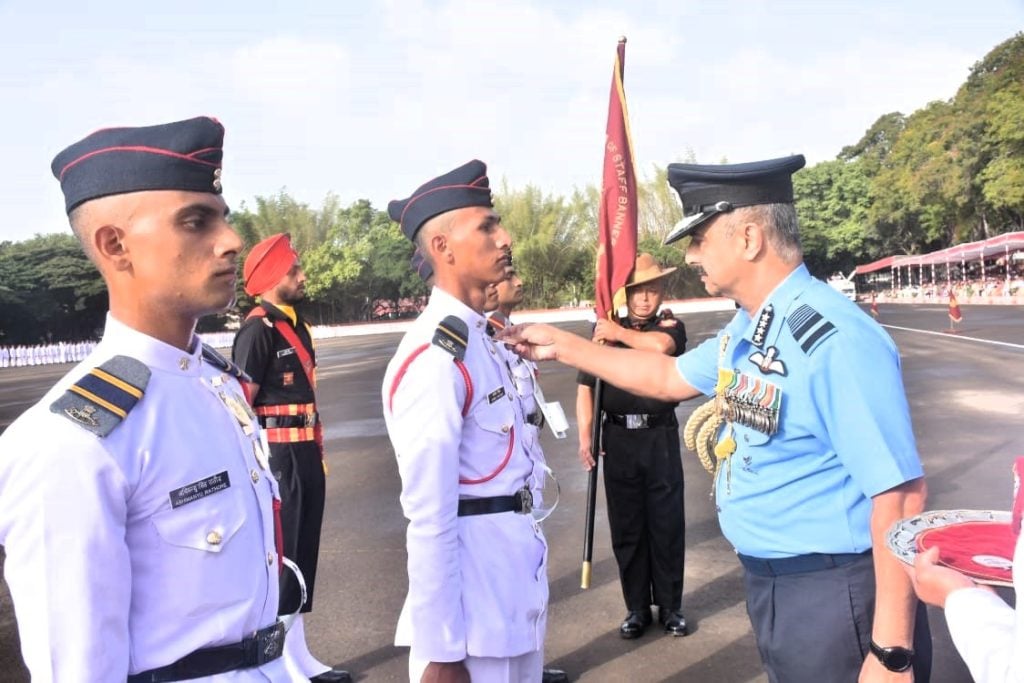The National Defence Academy (NDA) stands as a beacon for aspiring military leaders in India. This elite institution is pivotal in shaping the future of the Indian Armed Forces by providing rigorous training to cadets from the Army, Navy, and Air Force. Nestled in the serene environment of Khadakwasla, near Pune, Maharashtra, the NDA has been a cornerstone of military education since its establishment in 1954.
This article aims to delve into the NDA’s full form, its significance, and the diverse job profiles available to its graduates.
Also Read | NDA Salary 2025, Basic Pay, Structure, Perk and Benefits
NDA Full Form and Overview
The acronym NDA stands for National Defence Academy. This prestigious institution is recognized as the foremost training establishment for future officers in the Indian military. The NDA is unique in its tri-service approach, preparing cadets for a career in the Army, Navy, and Air Force under one roof.
Admission Process
Gaining admission to the NDA is a competitive endeavor. Candidates must pass an entrance examination conducted by the Union Public Service Commission (UPSC), which takes place twice a year. The exam is a gateway for aspiring cadets to join this esteemed academy, where they undergo extensive training in various domains.
NDA Exam Structure
The NDA examination consists of two main papers: Mathematics and the General Ability Test (GAT). Each paper has its own set of questions, marking scheme, and duration, which are crucial for candidates to understand prior to attempting the exam.
| NDA Exam Structure | Mathematics | General Ability Test |
|---|---|---|
| Number of Questions | 120 | 150 |
| Marks per Question | 2.5 | 4 |
| Negative Marking | 0.83 | 1.33 |
| Duration | 2.5 hours | 2.5 hours |
| Total Marks | 300 | 600 |
The successful candidates from this examination proceed to the Service Selection Board (SSB) interview, which assesses their potential for leadership and military service.
Historical Context of the NDA
The NDA was established in 1954, marking a significant milestone in military education. It holds the distinction of being the world’s first tri-service academy, a pioneering concept that has been emulated by other nations since.
Evolution of the NDA
Originally located in Dehradun, the NDA was relocated to its current site in Pune in 1974. Over the years, it has transformed into a premier institution that not only focuses on military training but also emphasizes character development and academic excellence.
National Importance
Recognized as an institution of national importance, the NDA plays a vital role in cultivating leaders who are prepared to meet the challenges of modern warfare and strategic defense. The academy has been instrumental in producing some of India’s most distinguished military leaders.
The NDA Motto: A Guiding Principle
The motto of the NDA, “Seva Param Dharma,” translates to “Service before Self.” This encapsulates the ethos that cadets are expected to embody during their training and subsequent military careers. The focus on selflessness and dedication to the nation is ingrained in the academy’s culture.
Core Values
Cadets are instilled with values such as loyalty, integrity, and accountability. These principles guide their conduct both within the academy and in their future roles as officers in the armed forces. The NDA’s training methodology emphasizes teamwork, discipline, and the importance of prioritizing collective goals over individual aspirations.
Job Profiles After NDA Training
Upon successful completion of their training at the NDA, cadets are commissioned as officers in various branches of the Indian Armed Forces. Each branch offers distinct roles and responsibilities, tailored to the unique requirements of the service.
Indian Army
In the Indian Army, officers may take on roles such as:
- Infantry Officer: Leading ground troops in combat operations.
- Artillery Officer: Overseeing artillery units and coordinating fire support.
- Engineer Officer: Managing engineering tasks, including construction and demolition.
- Signals Officer: Ensuring effective communication within military units.
- Intelligence Officer: Gathering and analyzing information for strategic decisions.
Indian Navy
Navy officers can specialize in various areas, including:
- Executive Officer: Responsible for the overall operations of a ship.
- Submarine Officer: Managing the operations of submarines.
- Logistics Officer: Overseeing supply chain and resource management.
- Naval Aviation Officer: Piloting aircraft and conducting aerial operations.
Indian Air Force
Air Force officers typically fill roles such as:
- Flying Officer: Piloting aircraft and engaging in aerial combat.
- Technical Officer: Managing technical operations and maintenance of aircraft.
- Administrative Officer: Handling administrative duties and personnel management.
The Importance of NDA Training
The NDA’s role transcends mere military preparation; it is crucial in shaping the character and mindset of future leaders. The comprehensive training provided ensures that cadets are well-rounded, capable of making sound decisions under pressure.
Character Development
Cadets undergo rigorous physical, mental, and emotional training, which fosters resilience and adaptability. The academy’s environment encourages camaraderie and teamwork, essential traits for anyone in military service.
Leadership Cultivation
Leadership is a cornerstone of NDA training. Cadets are placed in various leadership roles during their training, allowing them to develop skills necessary for commanding troops and making strategic decisions.
NDA Exam Preparation Strategies
For candidates aspiring to join the NDA, effective preparation is key to success. Here are some strategies to enhance your chances of passing the NDA exam.
Understanding the Syllabus
Familiarize yourself with the exam syllabus and focus on subjects that carry more weight. Prioritize Mathematics and General Ability, as these are the core components of the examination.
Regular Practice
Consistent practice is essential. Utilize previous years’ question papers and mock tests to gauge your preparation level and identify areas requiring improvement.
Time Management
Develop a study schedule that allocates time efficiently across subjects. Time management is crucial during the exam, so practice solving questions within the allotted time frame.
The Selection Process: SSB Interview
The SSB interview is a critical component of the NDA selection process. It evaluates candidates on various parameters, including psychological aptitude, leadership potential, and overall suitability for military service.
Stages of the SSB Interview
The SSB interview consists of several stages:
- Stage I: Includes Officer Intelligence Rating (OIR) tests and Picture Perception and Description Test (PPDT). This stage is qualifying in nature.
- Stage II: Involves comprehensive assessments, including interviews, group tasks, and psychological evaluations.
Importance of Medical Examination
After clearing the SSB interview, candidates undergo a medical examination to ensure they meet the physical and health standards required for military service.
NDA Training Curriculum
The training curriculum at the NDA is meticulously designed to ensure cadets receive a balanced education. It encompasses academic subjects, military training, and physical conditioning.
Academic Excellence
Cadets are taught a range of subjects, including Mathematics, Science, and Humanities. The academic curriculum is aligned with the standards of the University of Pune, ensuring a robust educational foundation.
Physical Training
Physical fitness is a crucial aspect of NDA training. Cadets engage in various sports and physical activities to enhance their endurance, strength, and agility.
Military Drills
Military drills are integral to the training process. Cadets participate in exercises that simulate real-life combat scenarios, preparing them for the challenges they will face in the field.
Also Read | How to Crack NDA SSB Interview
The Role of NDA in National Security
The NDA plays a significant role in fortifying India’s national security. By training capable leaders, the academy contributes to the overall readiness and effectiveness of the armed forces.
Strategic Importance
The unique tri-service training model of the NDA fosters inter-service cooperation, essential for modern warfare. Officers trained at the NDA are equipped to lead joint operations, enhancing the operational capabilities of the Indian Armed Forces.
Contribution to Defense Policy
Graduates from the NDA are not only military leaders but also contribute to shaping India’s defense policy. Their training equips them with a comprehensive understanding of national and international security dynamics.
The Future of NDA and Its Aspirants
As the landscape of warfare evolves, so too does the NDA’s training methodology. The academy continuously adapts to incorporate modern technologies and strategies, ensuring that its graduates are prepared for future challenges.
Embracing Technology
With advancements in technology, the NDA is increasingly integrating modern tools and techniques into its training programs. This includes simulations, cyber warfare training, and advanced communication systems.
Career Opportunities
Graduates of the NDA enjoy a plethora of career opportunities, not just within the armed forces but also in various sectors, including government services, security agencies, and private organizations.
Also Read | Why is NDA the Best Career Option to Join Defence?
Conclusion
The National Defence Academy is more than just a training institution; it is a crucible for developing the future leaders of the Indian Armed Forces. The rigorous training, combined with a strong emphasis on character development and academic excellence, prepares cadets for the multifaceted challenges of military service. Understanding the NDA’s full form and job profile is essential for aspiring candidates, as it offers a pathway to a fulfilling career dedicated to serving the nation.
FAQs
1. What is the NDA full form?
The full form of NDA is National Defence Academy.
2. How can I apply for NDA?
Candidates can apply for the NDA exam through the UPSC website, where they must fill out the application form during the designated application period.
3. What subjects are tested in the NDA exam?
The NDA exam tests candidates in Mathematics and General Ability, covering various topics in these subjects.
4. What is the age limit for NDA candidates?
Candidates must be between 16.5 to 19.5 years of age to be eligible for the NDA exam.
5. What happens after completing NDA training?
Upon successful completion of training, cadets are commissioned as officers in the Indian Armed Forces, where they assume various roles based on their branch of services.
